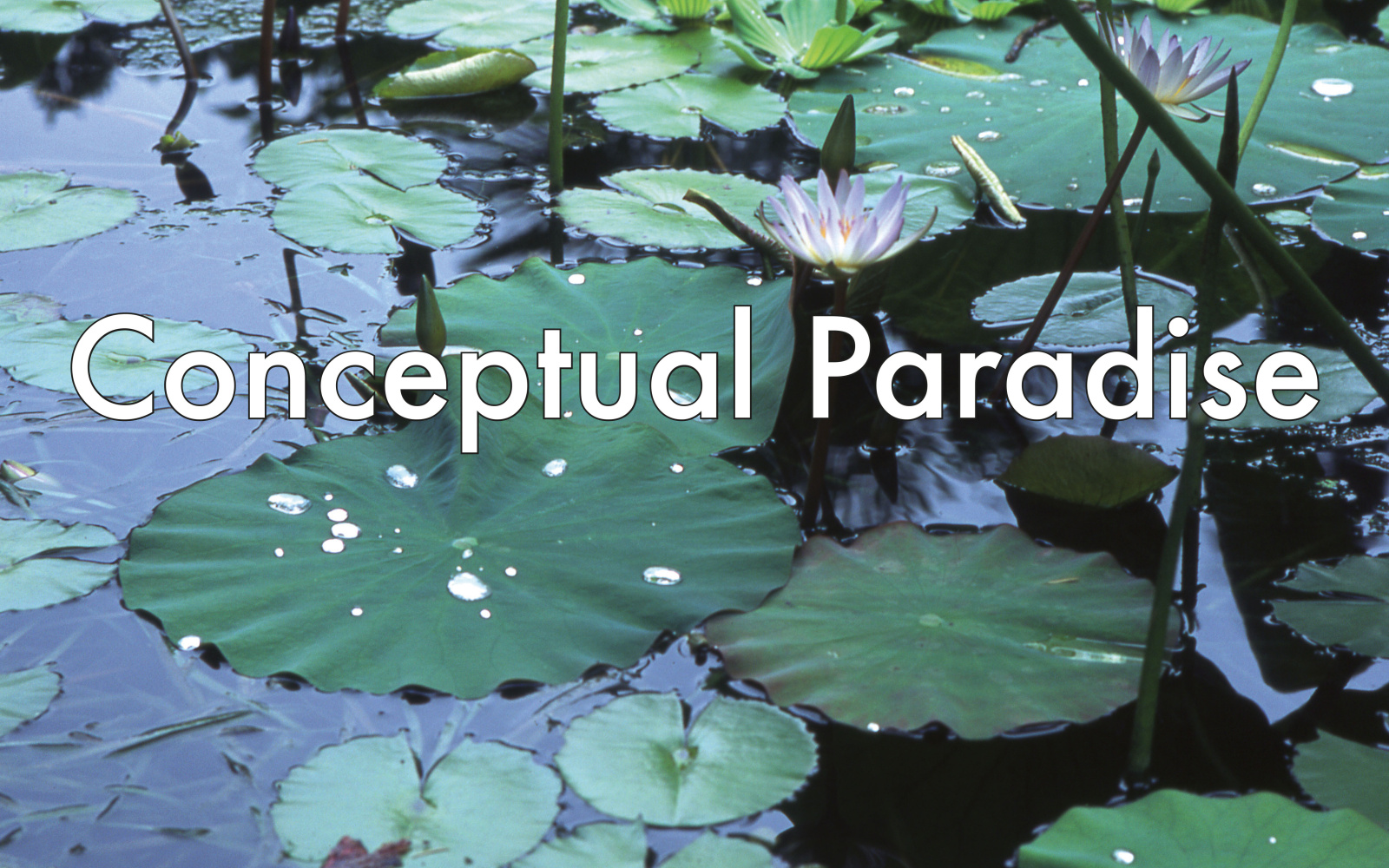- Event
- Lecture
Conceptual Paradise
Stefan Römer in conversation with Peter Weibel
Wed, November 27, 2019 7:00 pm CET
- Location
- Lecture Hall
The ZKM presents the audiovisual archive of the artistic research project »Conceptual Paradise« by the artist Stefan Römer. In conversation with Peter Weibel, Römer discusses the project and his approach to a critical, deconceptual art pistemology.
For his documentary film »Conceptual Paradise«, Römer conducted numerous interviews with internationally outstanding artists and art theorists of conceptual art over the course of three years. The film, completed in 2006, has been shown internationally at festivals, museum exhibitions and numerous art academies. Based on his filmic research, Römer then realized a website and exhibition with supplementary materials for the Kunstraum of Leuphana University in Lüneburg in 2009, which was awarded the university teaching prize. In 2019, the website was redesigned as a project archive with the support of the ZKM. The website is intended both as a medium for archiving and as a source for further artistic projects.
»Conceptual Paradise« focuses on discussions of conceptual art from the 1960s to the present. Impressive personalities such as Art&Language, John Baldessari, Daniel Buren, Valie EXPORT, Andrea Fraser, Dan Graham, Renée Green, Hans Haacke, Yoko Ono, Yvonne Rainer, Ed Ruscha, Seth Siegelaub, Peter Weibel and Lawrence Weiner contribute their views. With the film, Stefan Römer evokes the discussions from which Conceptual Art emerged in the 1960s and which, with »Global Conceptualism«, developed some of the most relevant questions for contemporary art.
The history of conceptual art, which eludes a coherent definition, is marked by struggles for strategies of representation and hegemony. In »Conceptual Paradise«, the discussions between the artists and art theorists bring to life a cultural-politically important confrontation that represents one of the prerequisites for an art-theoretical and philosophical understanding of contemporary art. Römer himself uses the term conceptualism to denote above all those practices that explicitly reflect the conditions of the cultural context and artistic production and rethink their own epistemological methods.
The project archive »Conceptual Paradise« sees itself as a dynamic archive of interests. In this respect, it also poses the question to what extent interactions of users with different interests can modify the archive in the future and to what extent such differentiating / shifting changes can be permitted without losing the archive itself. Which new curatorial forms of action can be motivated by this archive? And beyond that: to what extent can the overlapping interests of all those involved in this archive lead to new forms of alternative, previously suppressed artistic practices? What socio-political form of action does this archive make possible with regard to the reactionary contemporary backlash?
